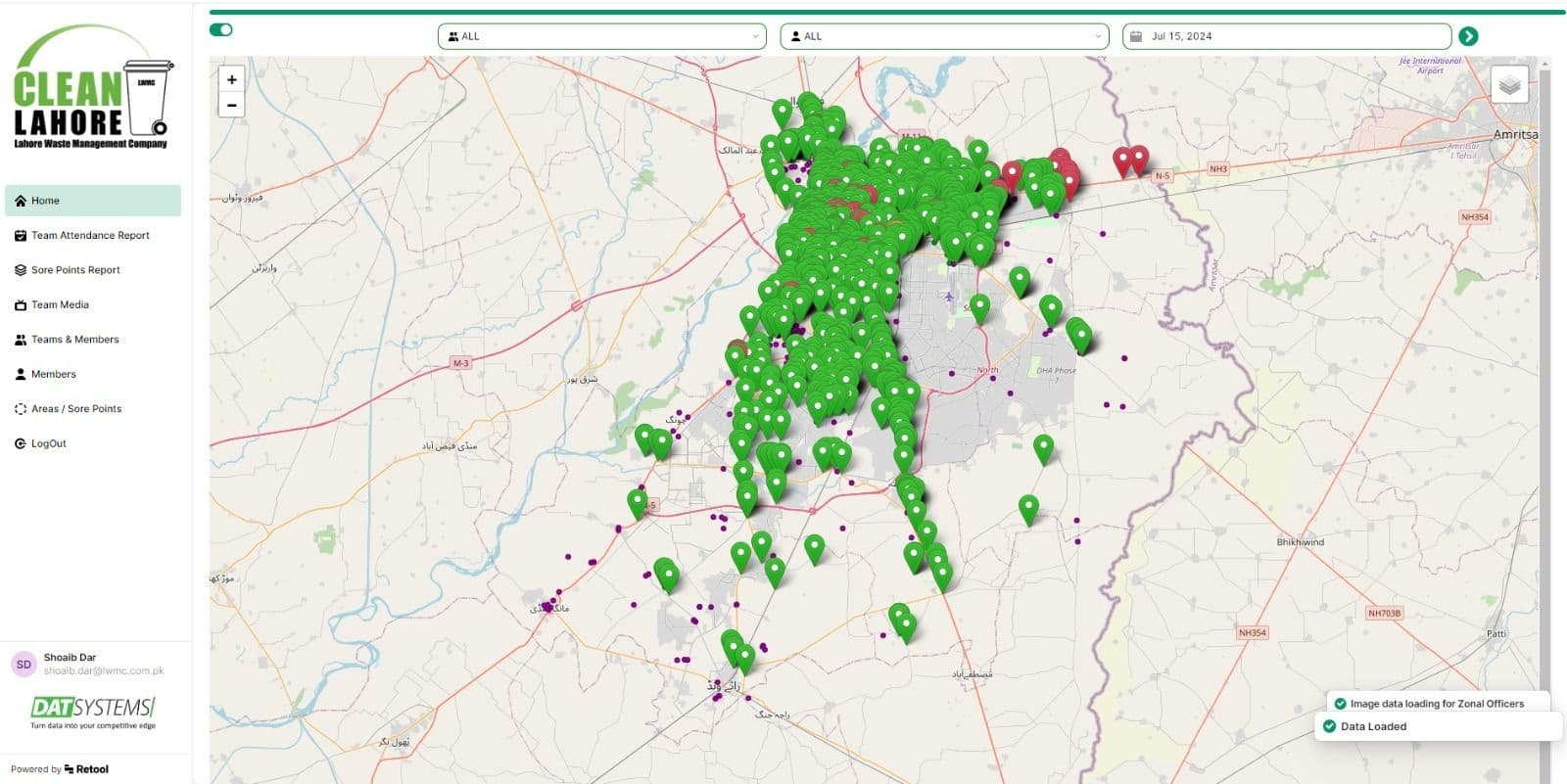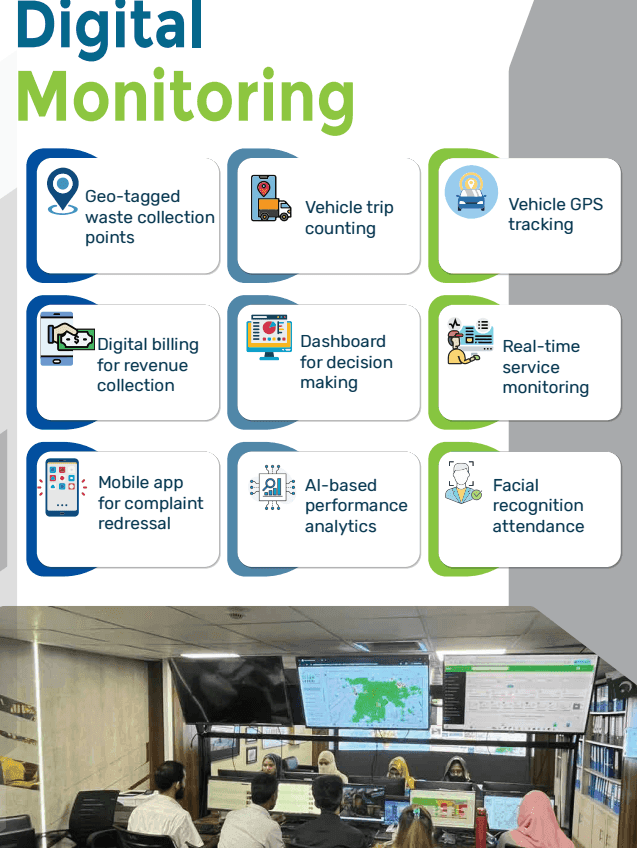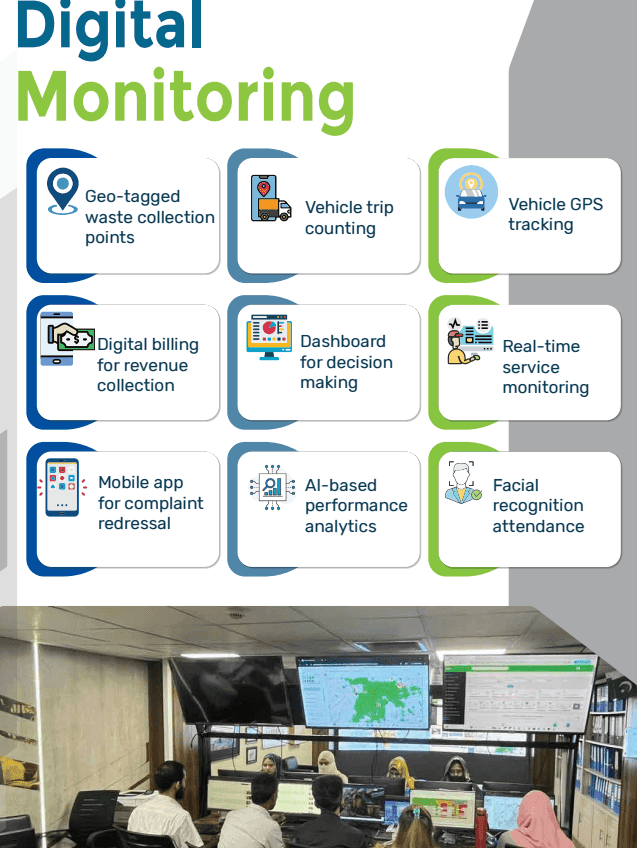From Geo-Tagging to AI: How Digital Monitoring is Powering Suthra Punjab
Under Chief Minister Maryam Nawaz's leadership, Punjab is leveraging cutting-edge technology—from GPS tracking to AI analytics—to transform waste management into a transparent, efficient, and citizen-centric service.

In a rapidly evolving world, technology has become a powerful tool for improving public services and ensuring transparency. Under the visionary leadership of Chief Minister Maryam Nawaz, the Suthra Punjab initiative is setting new benchmarks for urban cleanliness and service delivery. One of the most impactful steps in this journey is the introduction of Digital Monitoring Systems, designed to bring efficiency, accountability, and innovation to waste management across Punjab.
Through a combination of data-driven decision-making, real-time tracking, and AI-based analytics, the province is transforming how cleanliness operations are monitored and managed. These digital tools not only enhance operational effectiveness but also build public trust by ensuring that every service is measurable, transparent, and citizen-centric.
Accurate data is at the heart of efficient service delivery. Geo-tagging of waste collection points ensures that every location is digitally mapped and monitored. This enables authorities to plan optimized collection routes, reduce overlaps, and make sure that no area is left unattended. The integration of geo-spatial technology provides clear visibility, making it easier to track operations and address gaps promptly.
The introduction of vehicle GPS tracking and trip counting systems allows for complete oversight of the waste collection fleet. Each vehicle is digitally monitored from the moment it starts its route until it completes its assigned trips. This minimizes chances of route manipulation, reduces fuel wastage, and ensures that resources are used efficiently. Real-time updates give supervisors the ability to make quick operational decisions and respond to issues as they arise.
Financial transparency is a cornerstone of modern governance. By shifting to digital billing systems, Suthra Punjab is modernizing revenue collection processes. Digital records minimize human error, curb leakages, and provide accurate, up-to-date financial data. This step not only supports better fiscal management but also builds public confidence in the system through clear and traceable transactions.
To support strategic planning, digital decision-making dashboards compile data from multiple sources and present it in a simple, actionable format. These dashboards help administrators analyze performance trends, identify challenges, and make informed policy decisions. With this digital backbone, waste management shifts from a reactive approach to a predictive and preventive model.


Timely action is essential for effective urban cleanliness. Through real-time monitoring systems, supervisors can track operational progress, monitor worker attendance, and ensure that all scheduled activities are completed on time. This level of visibility significantly improves service quality and allows immediate intervention in case of delays or disruptions.
Suthra Punjab emphasizes community participation as a key pillar of sustainable cleanliness. A dedicated mobile application allows citizens to register complaints, share feedback, and track their requests in real time. This two-way communication not only empowers communities but also strengthens accountability, ensuring that citizen concerns are addressed promptly and transparently.
The integration of artificial intelligence takes monitoring to the next level. By analyzing patterns in operational data, AI tools can identify inefficiencies, predict potential bottlenecks, and recommend targeted interventions. This data-driven approach enhances productivity, optimizes resource allocation, and supports continuous improvement in service delivery.
Efficient workforce management is crucial for large-scale operations. The introduction of facial recognition technology ensures accurate attendance tracking, eliminating proxy entries and enhancing discipline among field staff. Automated attendance systems provide real-time workforce data, enabling managers to deploy teams strategically and maintain service standards consistently.
The integration of digital monitoring tools marks a significant shift from manual, paper-based systems to modern, technology-driven governance. Under Chief Minister Maryam Nawaz Sharif's leadership, Punjab is embracing innovation to build cleaner, smarter, and more transparent cities.
By combining geo-tagging, GPS tracking, mobile applications, AI analytics, and real-time dashboards, the Suthra Punjab initiative is setting a new standard in public service delivery. These advancements not only improve operational efficiency but also foster trust between citizens and the government, paving the way for a sustainable and cleaner future for all.


